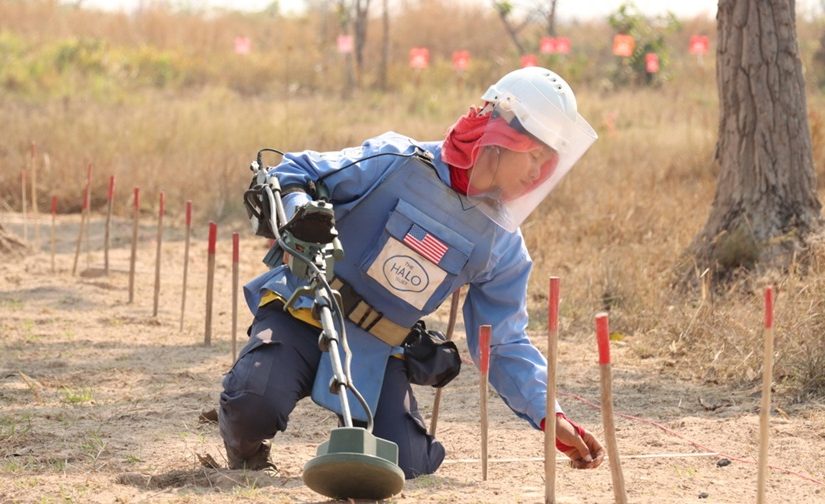WOAH donates 100,000 rabies vaccines to Mozambique
Mozambique marks a decade free of landmines – HALO Trust

FILE - For illustration purposes only. [File photo: HALO Trust]
- HALO returned to Mozambique in 2023 to support the Mozambican Armed Forces with weapons and ammunition management in Cabo Delgado.
- The organisation is helping to improve the security of weapons stockpiles, building and restoring armouries, training security personnel and providing explosive ordnance disposal to international standards.
In the week in which Mozambique marks a decade since it was declared landmine free, the HALO Trust is urging the international community to support other mine-affected countries achieve the same status.
Mozambique was one of the most heavily mined countries in the world and is seen as a beacon of hope for other countries living with the legacy of landmines and unexploded ordnance. Around one million people died during the civil war, with many thousands killed by landmines and explosives after it ended in 1992.
The HALO Trust started operations in 1993 and employed around 1,600 male and female Mozambican deminers over the course of 22 years. Its teams cleared major infrastructure including the Cahora Bassa hydroelectric power plant and Maputo railway line – clearing a record 34,000 landmines in a single year. Overall HALO cleared over 171,000 landmines from more than one thousand minefields – around 80 per cent of all the landmines destroyed.
“Demining Mozambique has transformed the nation,” said HALO CEO Major General James Cowan. “It has unlocked farmland, saved lives, lifted rural communities out of poverty and laid the foundations for roads, railways, schools and clinics.”
The 10-year anniversary comes at a time when cuts to overseas aid budgets from European donors are posing a severe risk to landmine clearance efforts in countries such as Cambodia, Sri Lanka and Zimbabwe. It also coincides with a shift in global norms on landmine usage following Russia’s invasion of Ukraine in 2022. Several European states plan to withdraw from the Anti-Personnel Landmine Ban Treaty (Ottawa Treaty) this year. Mozambique’s sustained mine-free status stands as a powerful reminder of the significant economic and social benefits that come from upholding the global ban on landmines.
“The Ottawa Treaty has saved millions of lives and resulted in the destruction of over 55 million anti-personnel mines,” said Ramadane J João, Weapons and Ammunitions Project Manager at HALO Mozambique. “Today’s milestone is a reminder that mines and explosive remnants of war continue to maim and kill civilians long after guns fall silent, including children born long after peace treaties are signed. Peace can never truly take hold as long as these indiscriminate weapons remain. With the right international support, many other countries such as Sri Lanka and Zimbabwe could soon be landmine free too.”












Leave a Reply
Be the First to Comment!
You must be logged in to post a comment.
You must be logged in to post a comment.